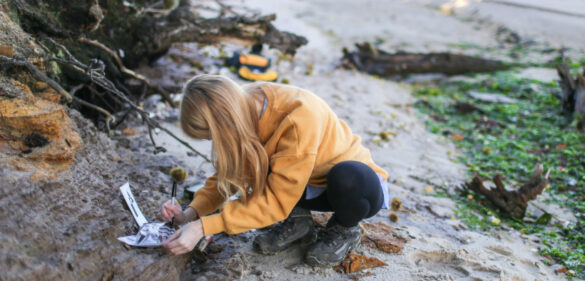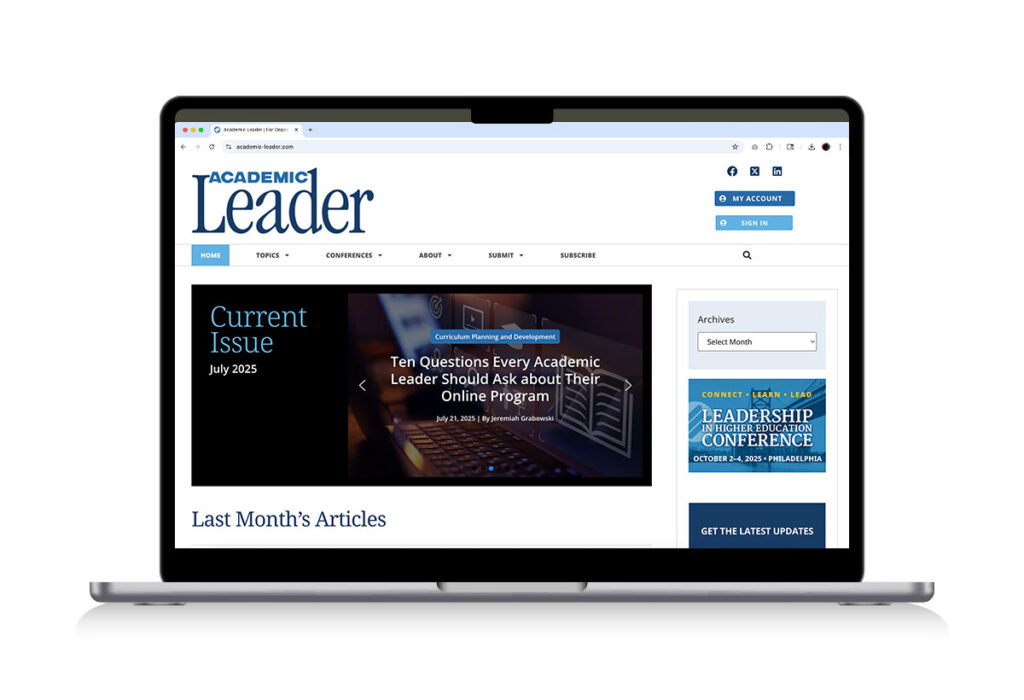Global out of the Gate: Student Outcomes and Long-Term Successes
The National Association of Colleges and Employers (NACE) includes global and intercultural fluency in its eight Career Readiness Competencies, and yet in its latest survey (2019), employers rated college graduate readiness in this area as 3.13 out of 5. Although international virtual exchange (IVE) has been used by some universities...
On the Growth and Value of Interdisciplinary Studies
In fall 2016, there were 61 undergraduate students majoring in interdisciplinary studies at our university. By the fall of 2020, that number had risen to 315. This spring the program lists 460 majors. During the entire 2016–2017 academic year, we saw 55 students graduate with a bachelor’s degree in interdisciplinary...
Using Authentic Assignments to Assess Student Learning
As an administrator, I often ask myself whether learning has taken place—although my language may be a little more colorful. I want to avoid wasting my student’s time and effort, and even more so, I really do want to make sure that my students have learned something. In addition to...
Ways to Use Badges at Your Institution
Badges have become a hot topic in higher education over the past few years and are being used in a variety of different ways. Some use badges as an alternative method for credentialing learning, while others use it as a means of gamifying learning. Here are the options for using...
Make Experiential Learning REAL on Your Campus: Principles for Success
As the cost of attending college has risen, so have the voices questioning the value of the college experience. How many articles have we all read questioning whether the debt incurred to complete a four-year degree is worth it? One clear strategy for showcasing the value of a traditional university experience...
Lessons Learned from 13 Years as a Director of Online Education
Back in 2004 I made the decision to develop my first online course. I was using online discussions in one of my face-to-face classes and having success with them—really, my primary motivation to teach fully online. So in 2005 I took the leap and offered my first online class. No...
Fostering Innovation with a Hands-Off Approach
Millersville’s Open Education Working Group was initially formed by like-minded faculty, librarians, and staff who wanted to promote the use of OER across campus. The self-assembled group planned events for Open Education Week and organized a virtual conference to help broaden the understanding and use of OER. The group created an Open...
Program Acquisitions: Lessons for Leaders
In my role as dean of the College of Health and Science at Concordia University, St. Paul (CSP), I collaborated in the acquisition of two resource-intensive healthcare programs associated with university closures. In December 2016, CSP began the acquisition process for a pre-licensure nursing program, and, in March 2019, CSP...
Both Sides, Now: Creating a Culture of UDL
In a 1969 song, Joni Mitchell tells us of how she’s looked at life from “Both Sides, Now.” That is sage advice for considering how Universal Design for Learning (UDL) can benefit students when faculty and administration examine their hopes (and fears) for creating a new learning experience. At two recent...
Recruiting Subject Matter Experts for Curriculum and Course Design: Three Nonmonetary Strategies
For many institutions, attracting quality subject matter experts (SMEs) for curriculum and course design is challenging under the best circumstances. Budgetary constraints often compel institutions to pursue nonmonetary recruitment strategies. Furthermore, money is not always the deciding factor in an SME’s choice of opportunities. Successful, passionate practitioners have many options...













